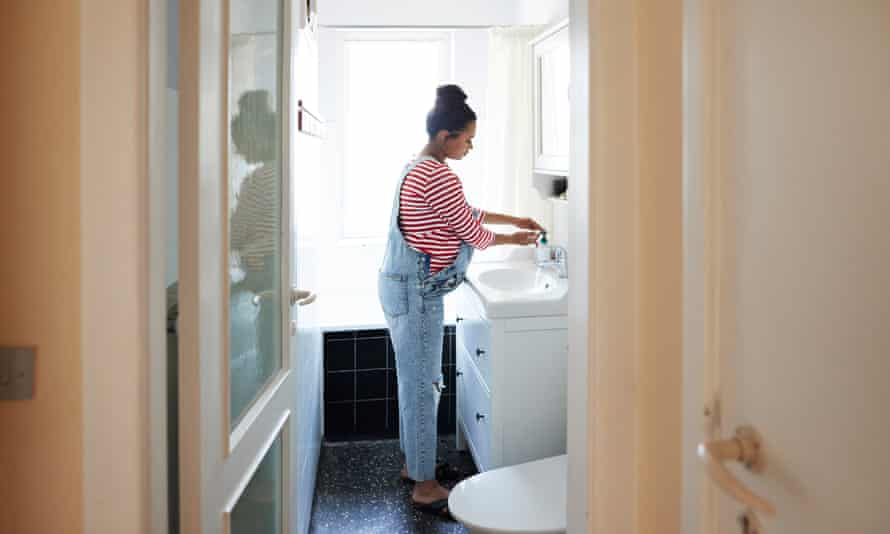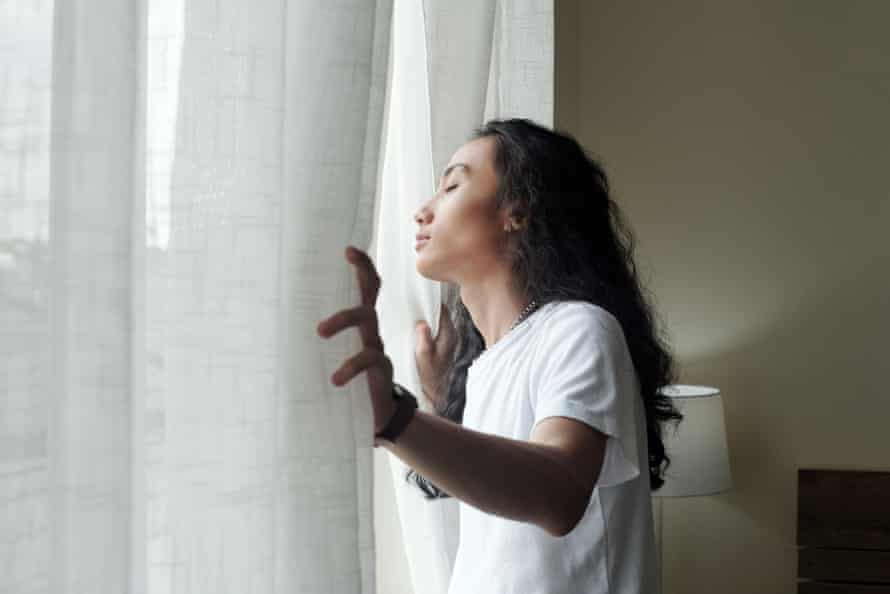[ad_1]
We’re two and a half years into the Covid-19 pandemic and it appears different viruses are making a seize for the highlight.
There are outbreaks of hand, foot and mouth illness at childcare centres throughout the Northern Territory and north Queensland, hovering influenza case numbers, and the emergence of monkeypox in Australia (although consultants say it’s unlikely to take off).
The excellent news is that persevering with a number of the well being and hygiene habits adopted due to Covid may also cut back the chance of contracting different lurgies, consultants say.
Minding your palms
Research have proven the variety of folks soaping their palms after a visit to the bathroom was low earlier than the pandemic: round one in 4 globally, and one in two in areas with good entry to hand-washing amenities.
This led to a number of (grubby) finger-pointing early within the pandemic, with a deluge of public messaging and awkward movie star movies emphasising the significance of washing your palms completely with cleaning soap and working water for 20 seconds, or utilizing hand sanitiser for those who can’t get to a faucet.
Dr Kerry Hancock, an Adelaide-based GP with a particular curiosity in respiratory drugs, says though it’s now recognized that Sars-CoV-2 primarily spreads via the air, hand hygiene is the “cornerstone” of an infection prevention – and a easy option to minimize transmission of different viruses and micro organism.

“It’s such a straightforward factor to do, to maintain washing or sanitising our palms earlier than we eat or contact issues … however anecdotally I believe folks aren’t as fanatical about it as they have been six months in the past, on the peak [of Covid cases] in South Australia.”
Affiliate Prof Holly Seale, an knowledgeable in perceptions and behaviours concerning infectious ailments from the College of New South Wales, notes most individuals are taught from childhood about hygiene within the context of defending themselves – however hand hygiene goes each methods.
Ensuring your palms are clear earlier than a visit to the retailers or a experience in an elevator is “actually about defending different folks as properly”.
Behavior to ditch: gloves
Nevertheless, sporting gloves to guard your self from germs on surfaces, reminiscent of grocery store trolleys, is pointless, Seale says.
“Individuals who put on gloves are much less more likely to wash their palms and could also be growing their threat as a result of they assume their palms are clear.”
Common jabs
Seale recommends everybody over six months previous get the influenza vaccine, which in 2022 is protecting in opposition to 4 strains.
In 2021, Australia recorded zero flu deaths, with federal well being information from January to early November clocking solely 598 confirmed circumstances.
In distinction, three folks have died from influenza this yr to-date, and greater than 47,860 folks have caught it. “We’ve had a few years the place flu hasn’t actually been round, and there’s actually considerations that individuals have decrease ranges of safety,” Seale mentioned.
The federal authorities already foots the invoice for a flu vaccine for these at excessive threat, however the jab has briefly been made free for the final inhabitants by all state governments – so in every single place besides the Northern Territory and the ACT – at time of writing.
Seale calls this “an excellent initiative” and one that may “actually shift folks into contemplating flu vaccination as a part of their regular apply. As a result of when you’ve obtained it as soon as, you’re extra doubtless to return and get it once more.”
It could be value making the jab free long-term, Seale provides. Together with the flu vaccine, Hancock urges that everybody keep updated with vaccination in opposition to whooping cough (pertussis), a “nasty sickness” that erupts in Australia each few years.
Staying residence when sick (and masking when you may’t)
One of many greatest classes of Covid-19 has been the significance of unwell folks staying away from work and social occasions, says Affiliate Prof Sheena Sullivan, an infectious illness epidemiologist on the Doherty Institute.
She hopes employers will lead by instance, which could imply serving to workers make money working from home if properly sufficient, or addressing cultural boundaries to utilizing sick depart – reminiscent of worry of “letting the staff down”.
However casualised workforces and areas folks can’t make money working from home proceed to current a “actual threat” to illness management, and should be addressed by authorities, Sullivan says.
“It grew to become clear early within the pandemic that lots of people who work with a number of the most susceptible in our communities are a part of this massive casualised workforce, who don’t have sick depart entitlements, and are disincentivised from taking day without work … that features individuals who work in aged care and incapacity care, in addition to different important providers reminiscent of meatpacking.”
Signal as much as obtain Guardian Australia’s weekend tradition and way of life electronic mail
Sullivan hopes that when folks should exit whereas they’ve respiratory signs, there shall be a long-term shift in direction of sporting masks out of courtesy to others.
“I work with individuals who perceive viruses fairly properly so it’s an uncommon setting – however there are individuals who, in the event that they know somebody of their household is unwell or they’ve signs themselves, they begin sporting an N95 whereas they’re at work.”
Seale suggests employers present free surgical masks or respirators in case workers are caught out by newly creating respiratory signs whereas at work.
Hancock says “the very best masks is a N95 respirator, match examined and checked, and worn with the straps tied securely overhead. Nevertheless, the very best compromise for the general public is a surgical masks to stop transmission to others.”
Clearing the air
“We all know that, particularly in aerosol-transmitted illness, air flow is essential,” Hancock says.
The World Well being Group air flow “bible” has recommendation on assessing airflow for constructing managers in addition to folks caring for a Covid-19 affected person at residence, however Hancock encourages folks to consider social settings too.

“A whole lot of cafes and companies modified their buildings – perhaps knocked a wall right down to have extra open home windows … I’d actually decide and select the place I am going, for instance, not sitting to eat in a crowded place with poor air flow.”
Change to ditch: boundaries
Whereas good air flow is significant, there’s concern that plastic boundaries, reminiscent of these used at many retail checkouts, intervene with air flow and supply a false sense of safety, Hancock says.
“If you happen to’re on the grocery store counter and also you’re going to cough, you’re higher off sporting a masks to guard the cashier. In any other case, they’re going to be shielded from droplets [by the barrier] however … not from the tiny aerosols, that are going up into the air and being breathed in on the opposite facet.”
Having a plan
The pandemic has additionally underscored the significance of individuals with power well being situations having a plan to comply with if their well being worsens, Hancock says.
“My sufferers with bronchial asthma have been being way more adherent to their preventer remedy. They have been actually getting the message that in case your bronchial asthma’s beneath management and alongside comes a virus – irrespective of if it’s Sars-Cov-2 or rhinovirus [the main cause of the common cold], you’re much less more likely to tip into an exacerbation.
“It’s tougher for folks with different lung ailments, reminiscent of bronchitis or power obstructive pulmonary illness (COPD), to manage their illness … however all sufferers with power lung illness ought to have motion plans written down, so that they know tips on how to recognise in the event that they’re getting worse, if they should up their meds or begin one other remedy, if there’s a hotline they will name, or when to cellphone an ambulance.”
[ad_2]
Source link



